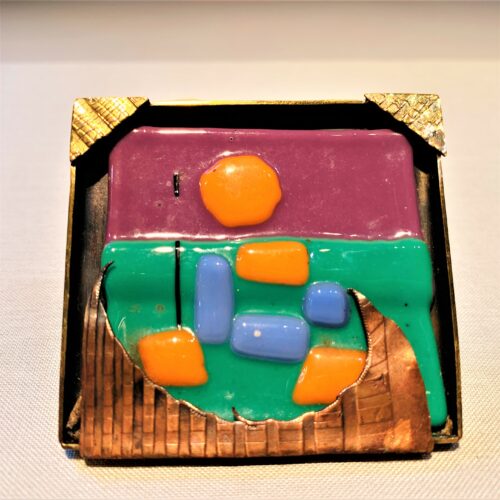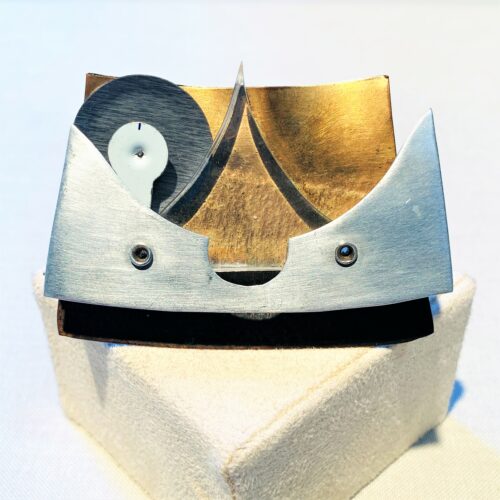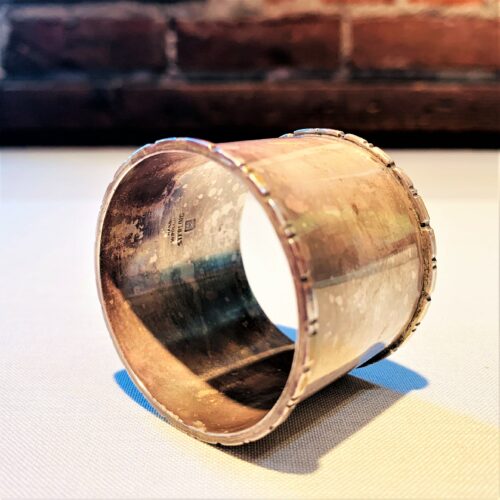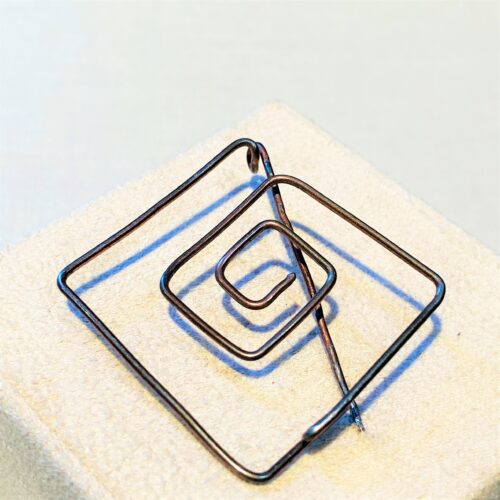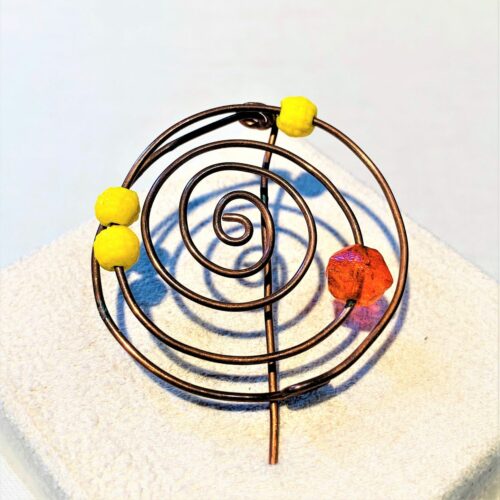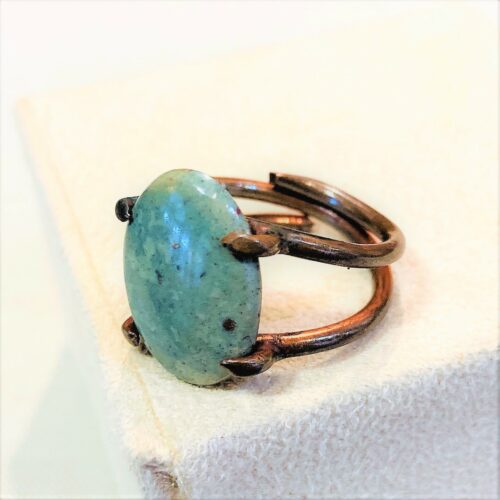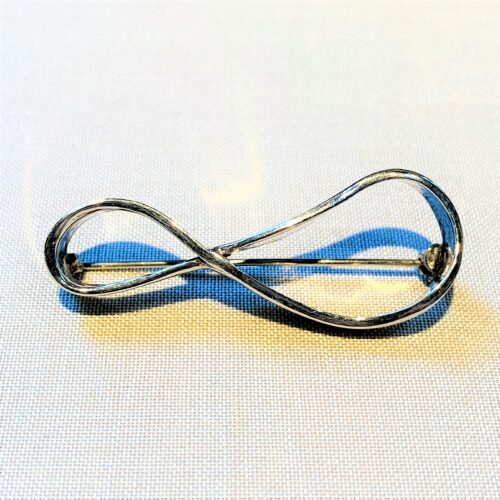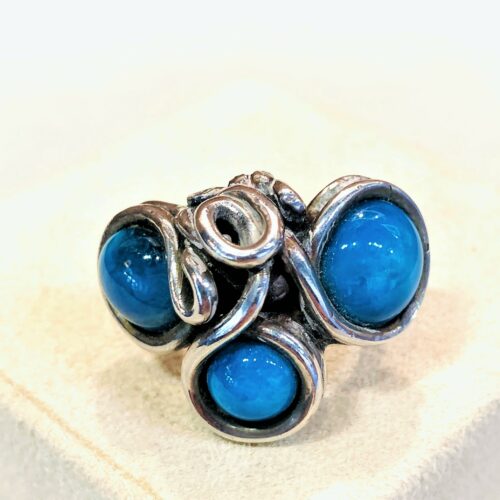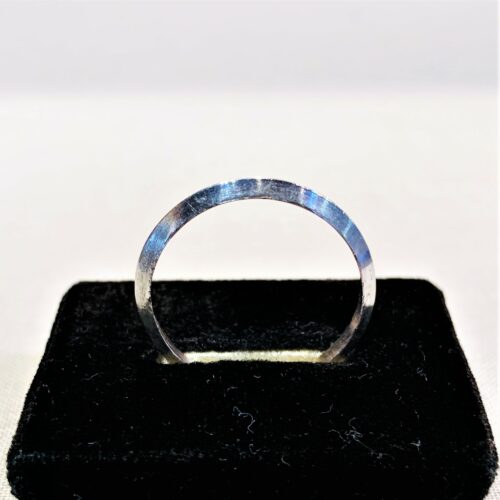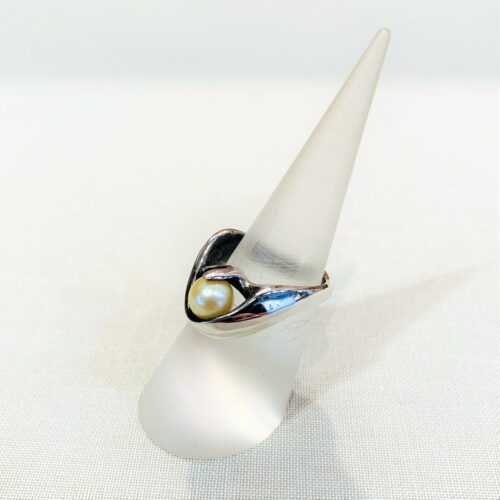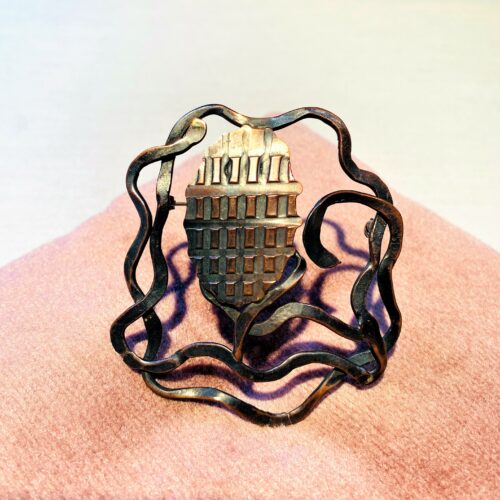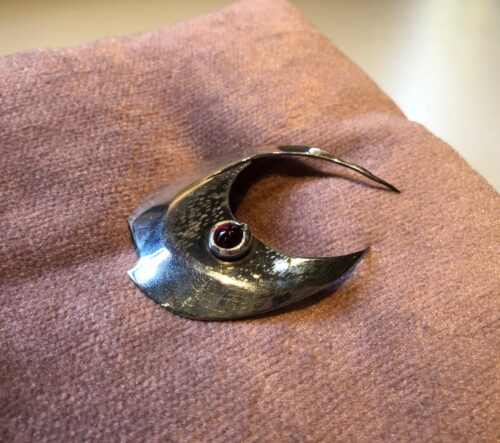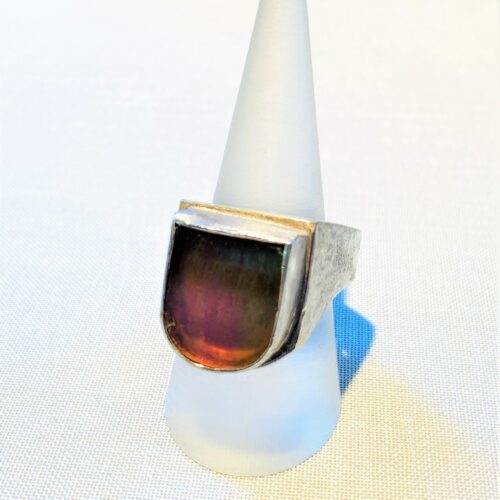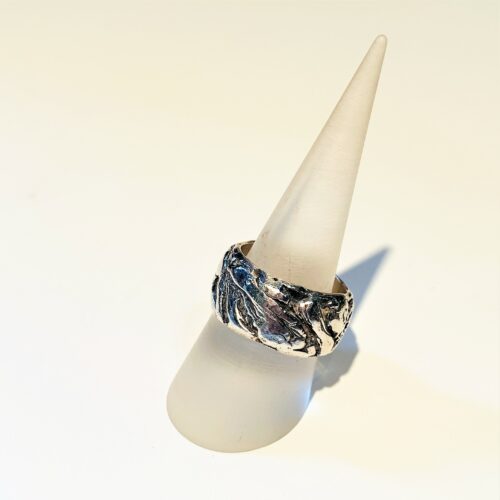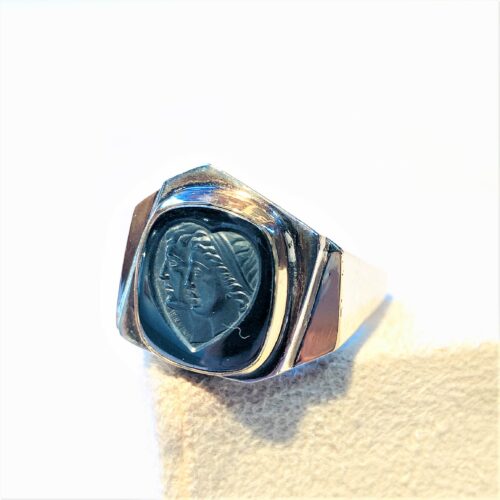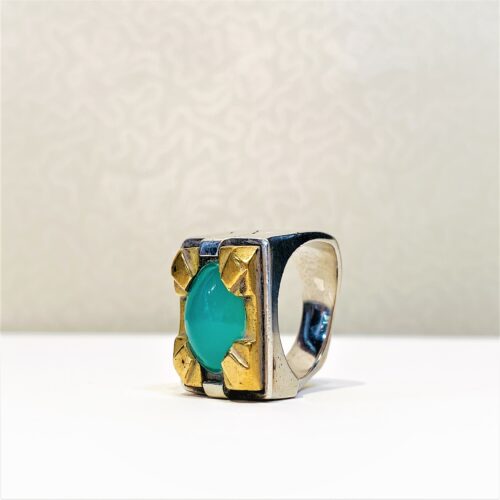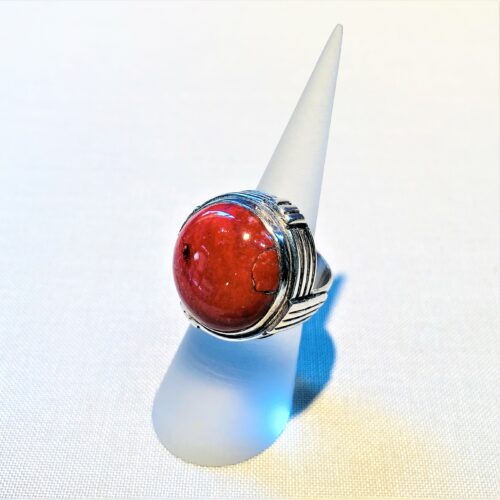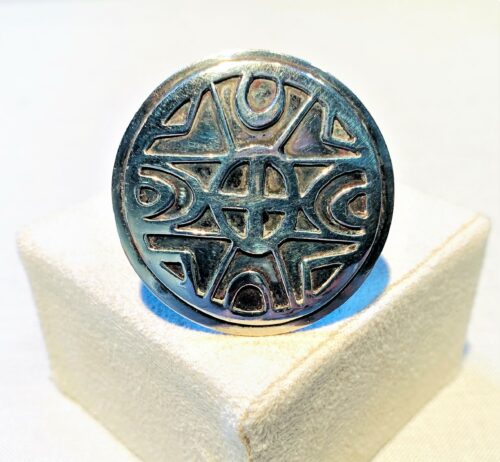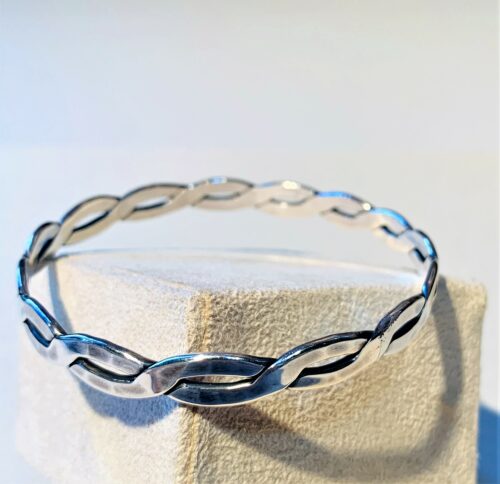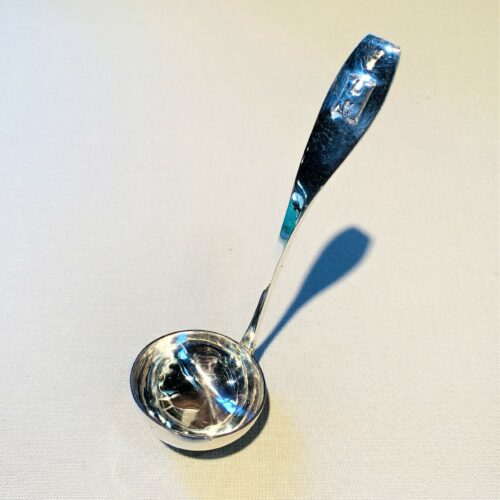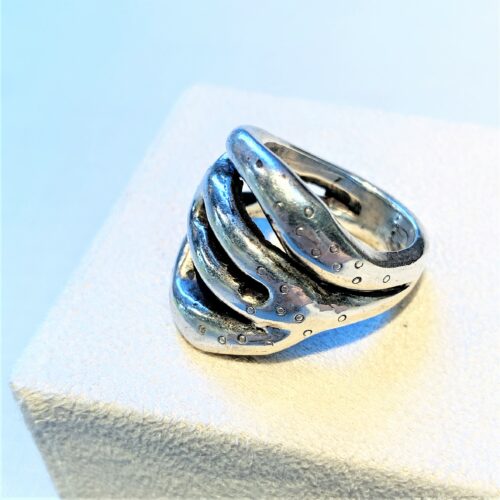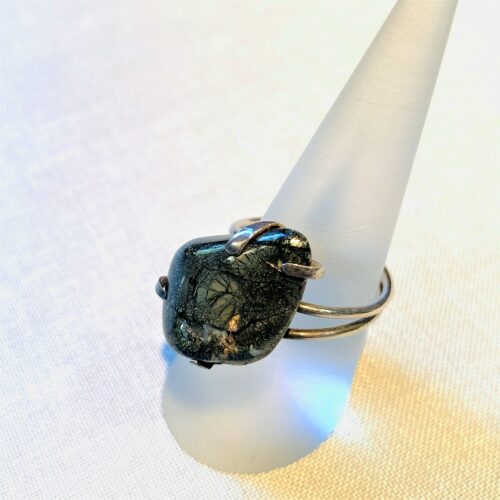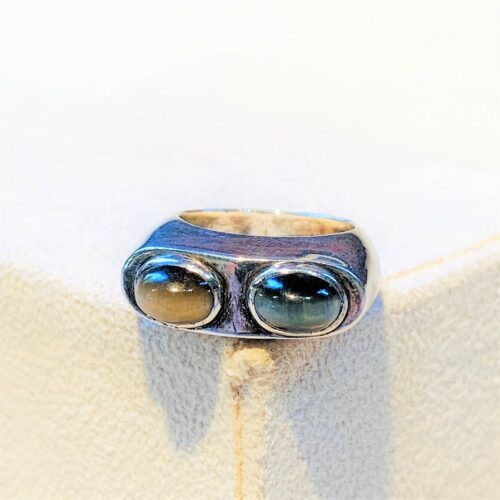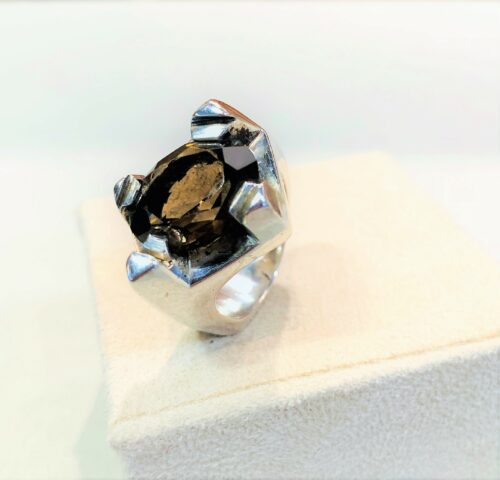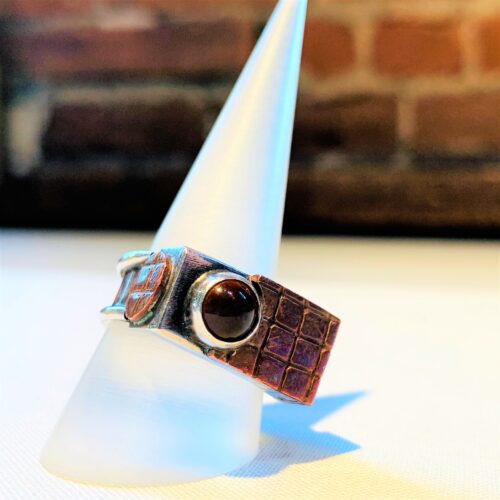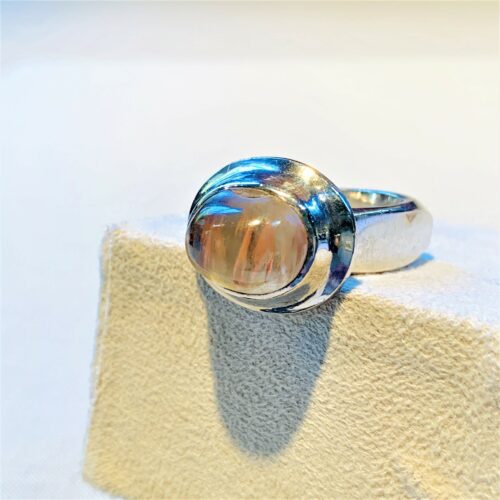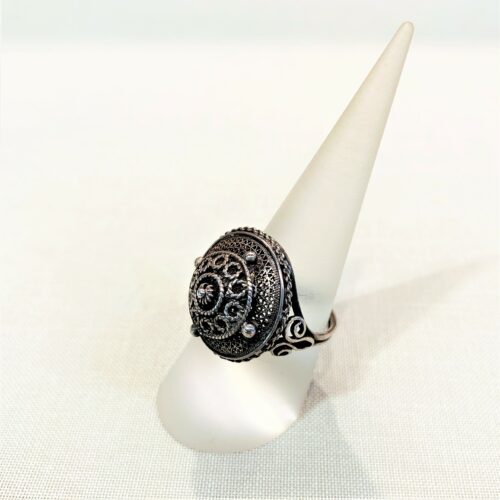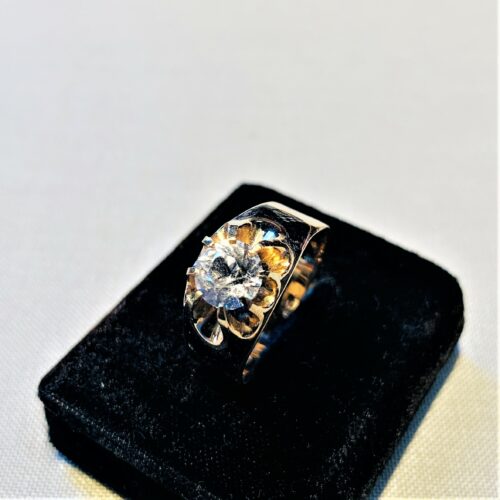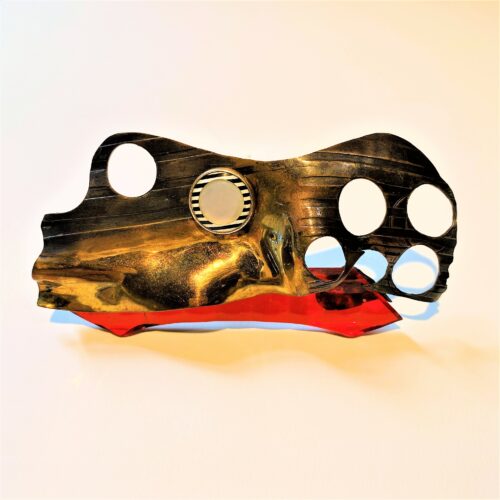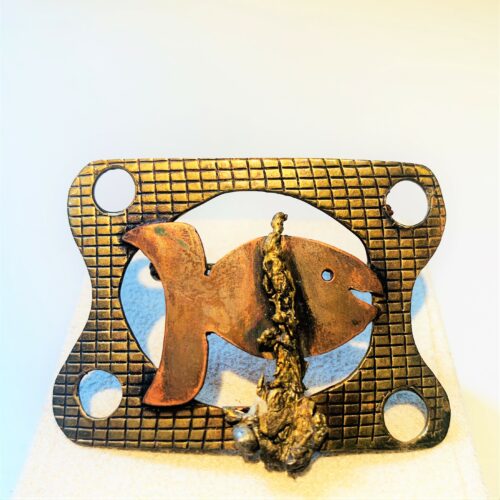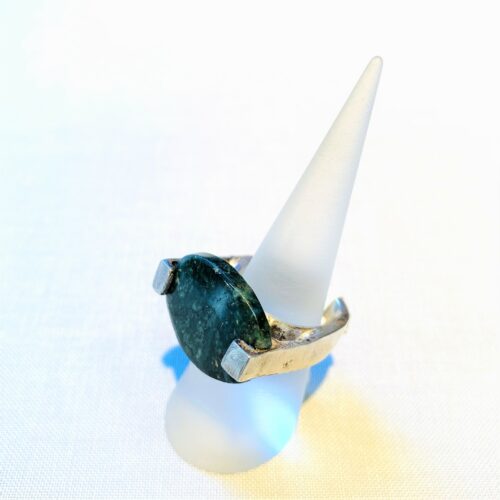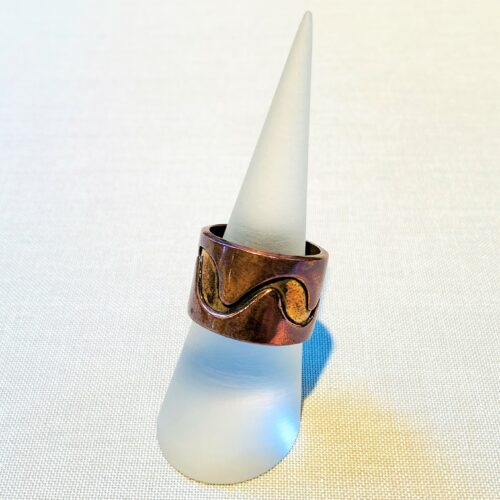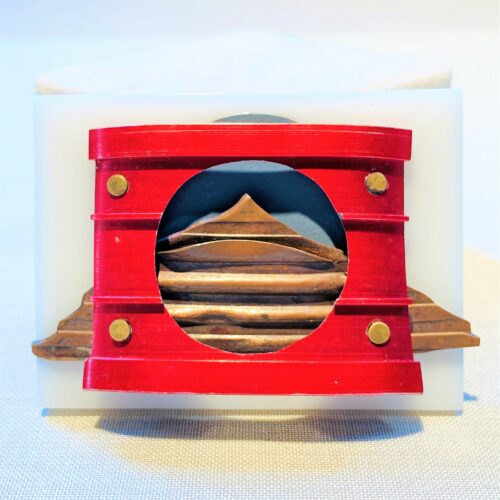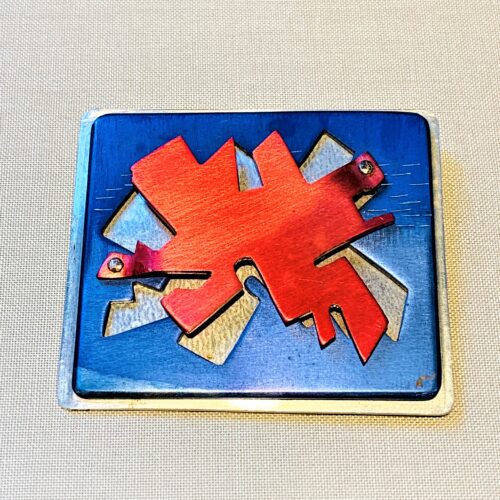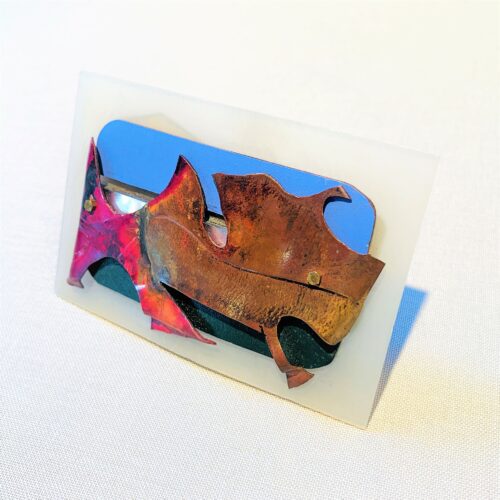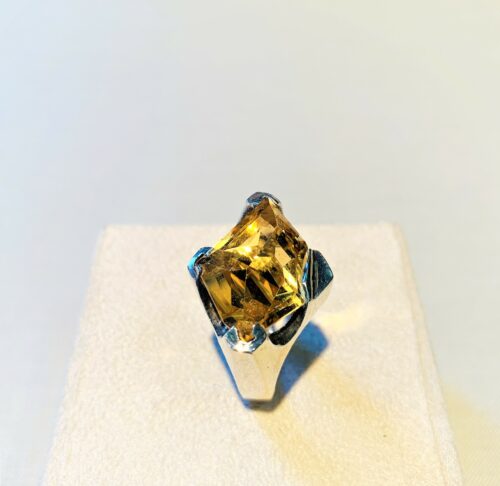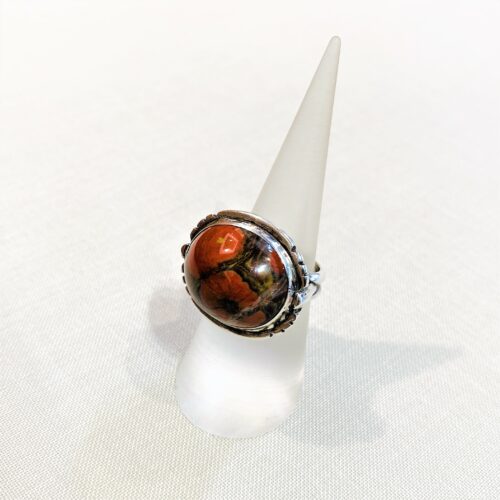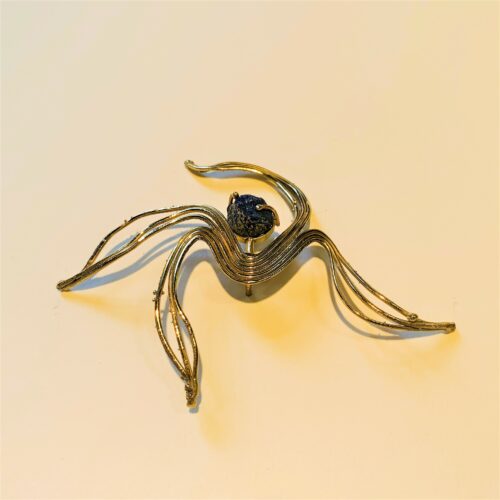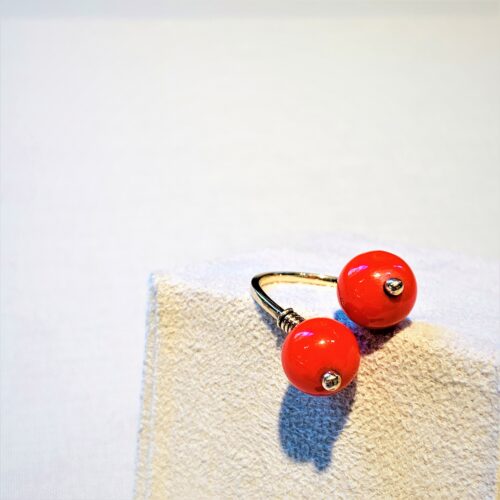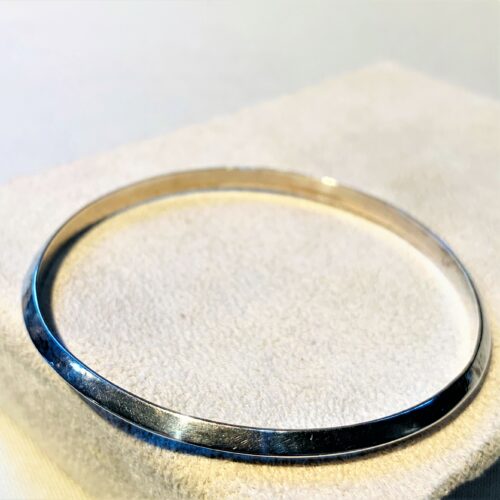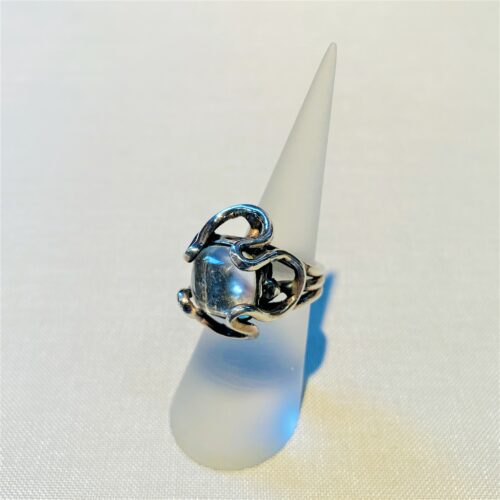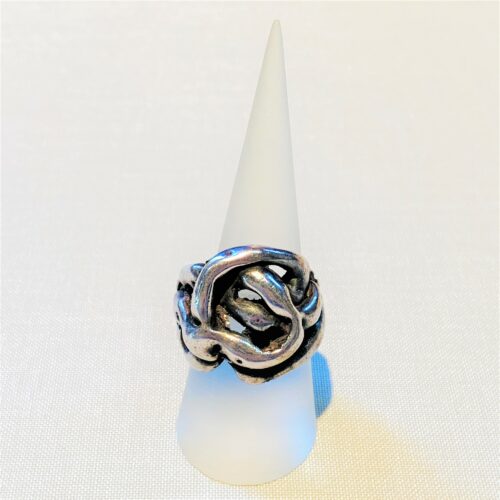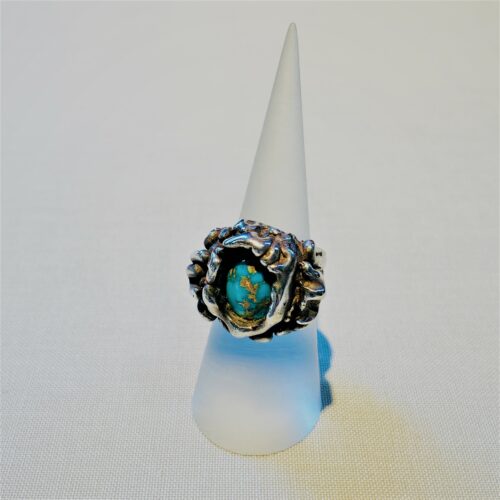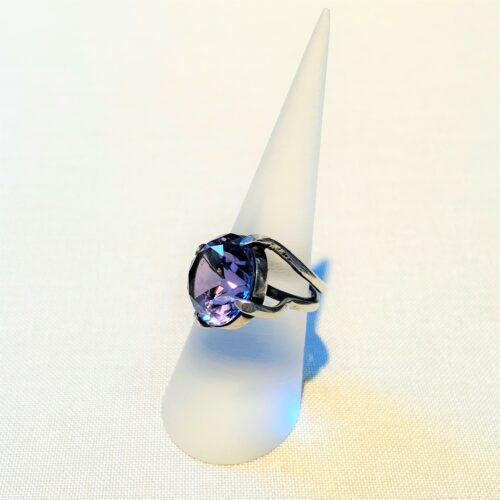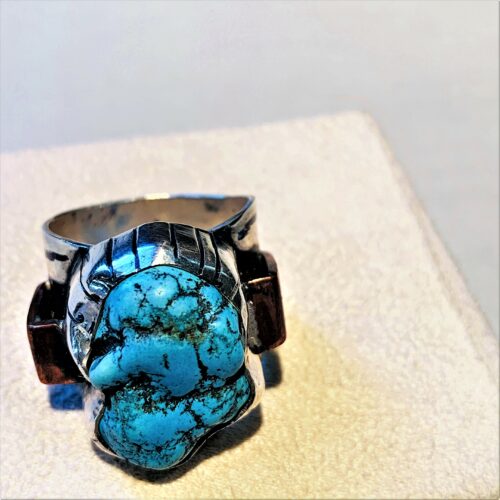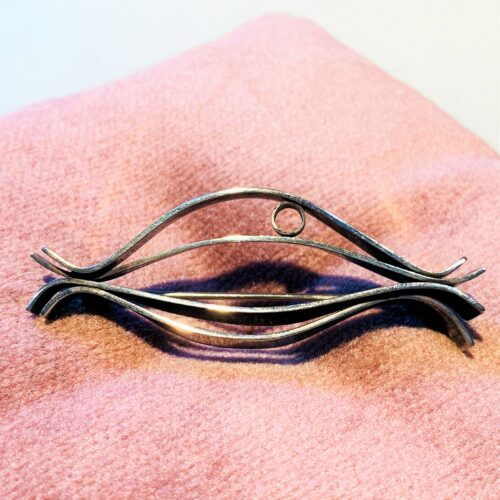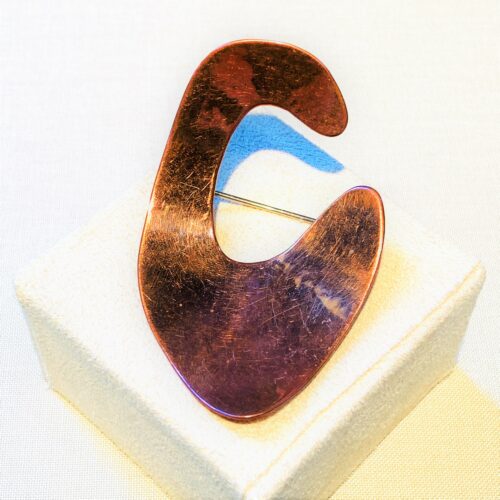Biography:
Max Nixon (1915-2000) was a professor of Metal Arts and Weaving in the Art Department at the University of Oregon from 1958 until his retirement in 1981. Then, he continued his teaching career as artist-in-residence at the EMU Craft Center till 1992. A mid-century modernist in his metalwork, Nixon employed clean lines and gentle organic curves. He also pioneered the incorporation of different, often recycled, materials in his creation. The exhibit showcases Nixon’s work through the years, including jewelry made for and worn by his wife, Hattie Mae, teaching samples, and one-of-a-kind boxes.
Born in Haverhill, Kansas, Nixon earned a BFA degree from Kansas University in 1939 and immediately after was awarded WPA funding to create a sculpture to honor the Mennonite farmers in Newton, Kansas. After having taught at the Kansas Art Center for a couple of years and gotten drafted to serve throughout Europe during WWII, Nixon pursued further study in jewelry and metalwork, bookbinding, and weaving at the School for American Craftsmen in Rochester, NY, Bradley University in Peoria, Illinois, and Mills College in Oakland, California. His teaching took him to Honolulu, Hawaii, and Utica, New York, where he set up a jewelry and metals program at the Munson-Williams-Proctor Arts Institute.
In 1957, Nixon returned to Eugene, Oregon, where he had taught at the University of Oregon the year prior, to marry Hattie Mae Rhonemus. Then, he began his long tenure at U of O teaching metal arts and weaving. Throughout his career as a professor and then as artist-in-residence at the Craft Center, which Nixon helped establish in 1972, his teaching inspired numerous students and artists. He and Hattie Mae provided additional invaluable services to the University and the Eugene community by giving lectures and volunteering at various museums, executing gifts for retiring Architecture and Allied Art (AAA) faculty, and assembling a 75-year timeline of AAA faculty members. For their lifelong contribution, the couple was jointly honored with the Eugene Arts and Letters Award in 1991. Nixon and Hattie Mae died respectively in 2000 and 2018, and their legacy continues to live on through the lives they touched and the artworks they created.
Chronology:
1915 – Born October 3 in Haverhill, Kansas, to Charles and Bertha Bals Nixon
1939 – BFA degree from the University of Kansas; awarded WPA fund for Mennonite Sculpture in Newton, Kansas
1940-41 – Taught at Kansas Art Center, Topeka, Kansas
1942 – Drafted into WWII and served in France, Holland and throughout Europe
1945 – Worked as a commercial artist in a printing firm in Wichita
1948-50 – Studied ceramics, jewelry and metalwork, bookbinding and weaving in Wichita and summers at Mills College, Oakland, California
1949 – Taught jewelry and metalwork at Mills College
1950 – Studied at School for American Craftsmen, Rochester, New York; attended Handy and Harman silversmithing workshops
1950-51 – Studied at Mills College for an MA degree
1951- Taught in Honolulu, Hawaii
1953 – Studied engraving at Bradley University, Peoria, Illinois
1956 – Taught at the University of Oregon
1957 – Set up Jewelry and Metals program at Munson-Williams-Proctor Institute, Utica, New York
1958 – Taught Jewelry and Metals and weaving at the University of Oregon
1970-95 – Executed numerous retirement gifts for the Architecture and Allied Arts (AAA) faculty
1971 – Awarded full professorship at the University of Oregon
1972 – Served on committee to establish and design EMU Craft Center and to select the director
1973 – Taught Jewelry and Metals exclusively at the University of Oregon
1974 – Exhibited at Oregon College of Education, Monmouth, Oregon
1981 – Designed and fabricated the University of Oregon Mace for graduation ceremonies
1985 – Exhibition “28 Years of Metalsmithing with Max Nixon” at the Museum of Art, University of Oregon
1986 – Retired from full time teaching and continued to work in EMU Craft Center
1989 – Assembled timeline of AAA faculty of the past 75 years with Hattie Mae
1991 – Won Eugene Arts and Letters Award with Hattie Mae
1992 – Retired from part time teaching
2000 – Died February 2 at age 84 in Eugene, Oregon
Press:
1981 – Max Nixon Repairs Destroyed Copper Calla Lilly in 1913 Fountain, Oregon Today
1985 – Show Honors Instructor, Oregon Daily Emerald
1985 – Twenty-Eight Years of Metalsmithing with Max Nixon, Museum of Art, University of Oregon
1985 – A Man of Precious Minds & Metals, Carolyn Kortge, The Register-Guard
Collections:
- Munson-Williams-Proctor Institute
- Jordan Schnitzer Museum of Art, University of Oregon
- Various private collections


